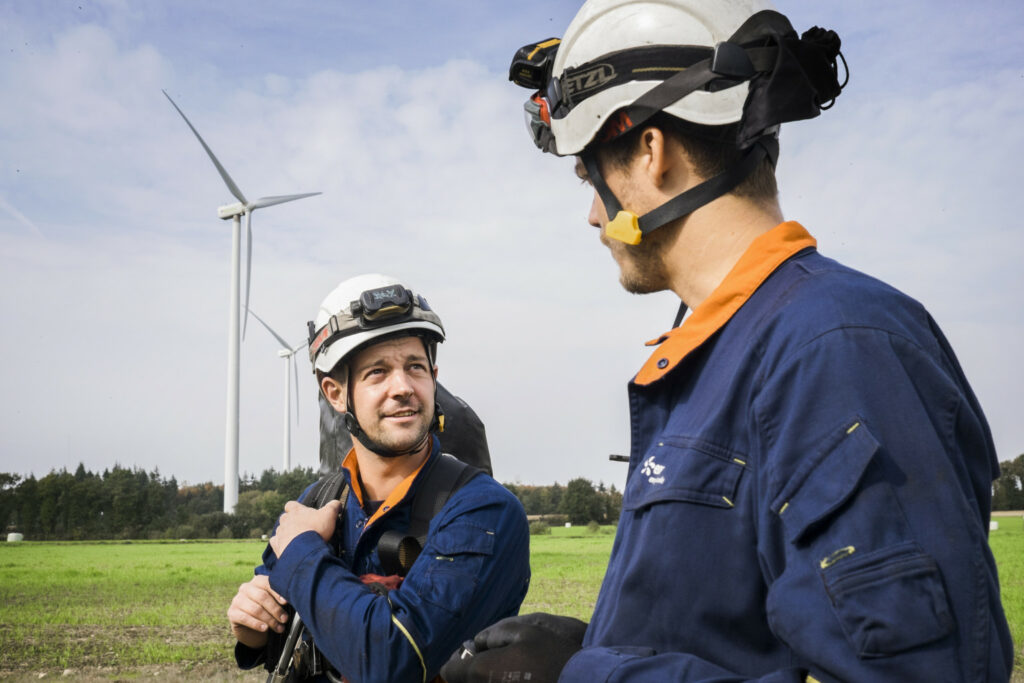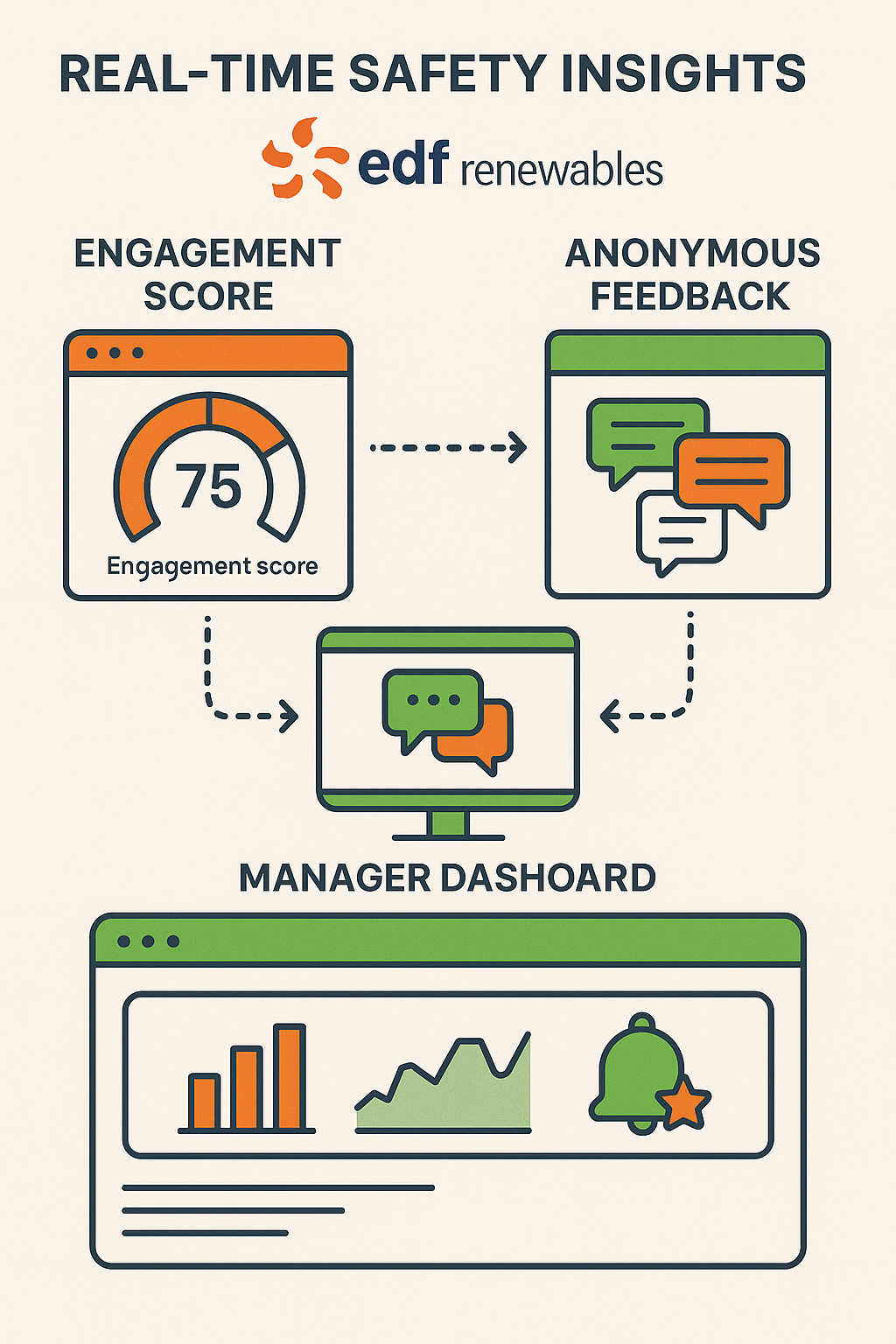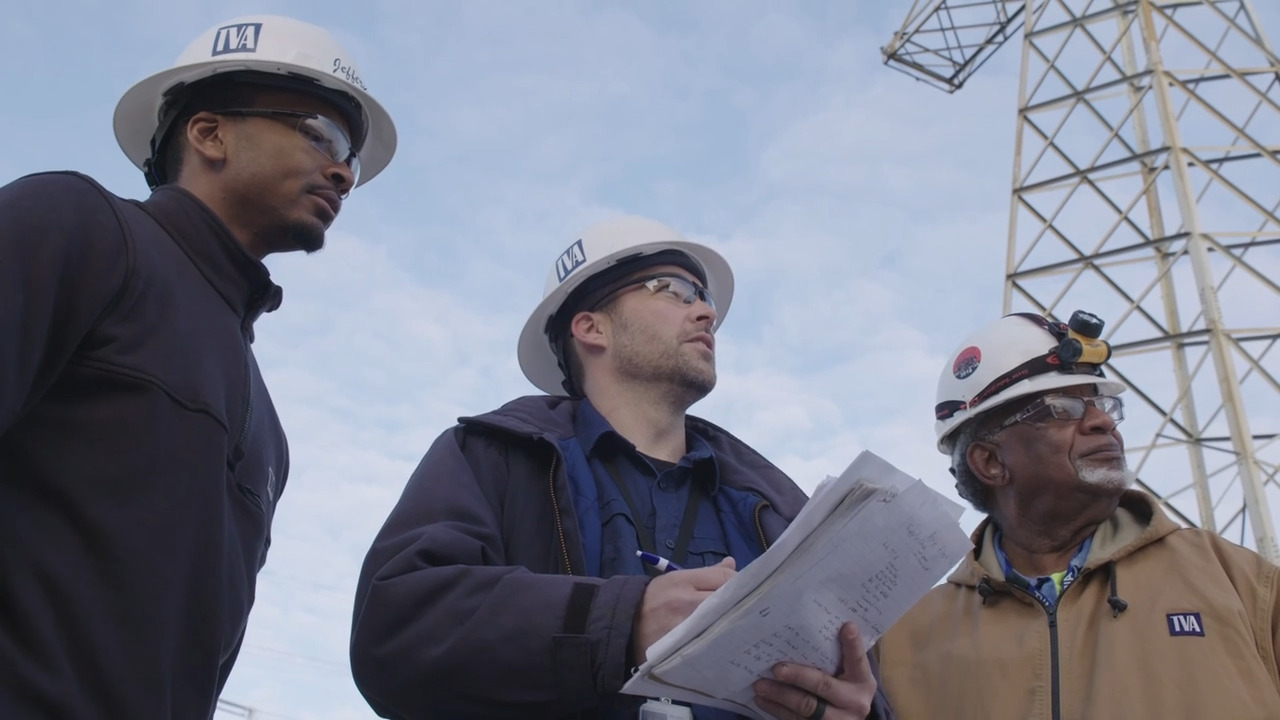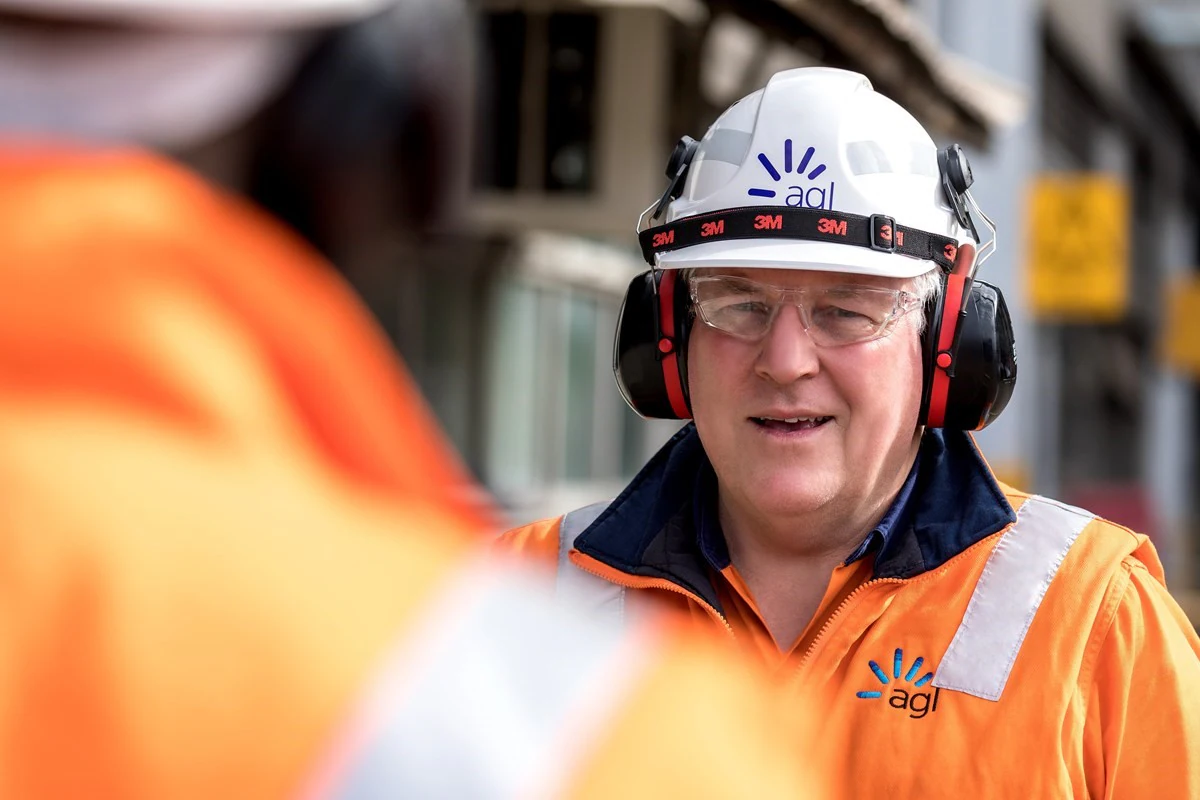Building Safety Culture Through Employee Voice Platform
From Lagging to Leading: How Continuous Listening Transformed Safety
"Significant cultural change after just one survey cycle. Workday Peakon gives us real-time insights that traditional safety programs miss." - Luka Winterborne, Head of Employee Experience


When EDF Renewables deployed Workday Peakon Employee Voice across 650+ staff managing 21 GW of renewable assets, they discovered something profound: traditional safety metrics were missing critical early warning signs. Within months, the platform identified recognition gaps at team level that annual reviews would never catch, enabling supervisors to acknowledge proactive safety behaviors immediately rather than celebrating the absence of injuries months later.
EDF Renewables' implementation of Workday Peakon Employee Voice in November 2021 fundamentally changed how the organization approaches safety recognition. Luka Winterborne, Head of Employee Experience, reported "significant cultural change" after just one survey cycle (Source: Workday Customer Stories, 2024). The platform empowered 55 leadership team members with real-time dashboards showing engagement scores from direct reports, identifying recognition gaps at team levels that traditional safety programs missed.
The system's anonymous feedback mechanisms preserve worker autonomy while building competence through targeted coaching. Managers can identify safety concerns and follow up confidentially without breaking anonymity. Most critically, supervisors can now acknowledge proactive safety behaviors immediately - when a technician reports a near-miss or identifies a hazard - rather than waiting months for performance reviews. This temporal connection between action and recognition creates the dopamine response that reinforces positive behaviors (Source: Workday Peakon Employee Voice documentation, 2024).

In August 2024, EDF Renewables signed a landmark recognition agreement with four trade unions (Prospect, Unite, GMB, and UNISON) covering 633 staff across the UK and Ireland. The agreement explicitly identifies health, safety, and wellbeing as priority areas for discussion, spanning 5 offices, 8 service centers, and 44 renewable energy sites (Source: UNISON, 2024; EDF Renewables UK, 2024).
The company's "Zero Harm" policy targets zero accidents and health impacts across all employees, managers, providers, and suppliers. By tracking High-Potential Events (HPEs) - near-misses that could lead to serious incidents - through experience-based feedback systems, EDF transforms close calls into learning opportunities. This approach earned recognition from the American Wind Energy Association in 2020 for Safety and Health Excellence, acknowledging the company's "dedication to advancing safety and health in the wind industry" (Source: AWEA, 2020).
The Global Wind Organization certification program expanded to include 29 hours of safety training (60% theory, 40% hands-on), with new cohorts every six weeks building a pipeline of safety-trained workers. The first cohort of 11 technicians completed training in July 2022, establishing continuous skill development aligned with self-determination theory's competence principle (Source: EDF Renewables, 2022).

EDF Renewables proves that continuous listening platforms identify systemic safety issues before they escalate into incidents. For government utilities like Stanwell managing distributed generation assets, this model offers a blueprint where employee voice drives safety culture transformation. The integration of real-time feedback with union partnership demonstrates that safety excellence emerges when workers feel heard, valued, and immediately recognized for proactive behaviors - not just the absence of injuries.







.svg)